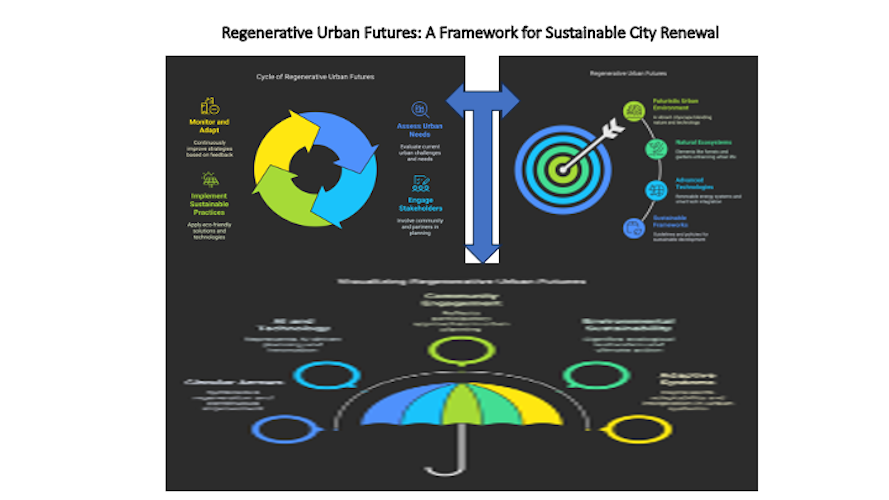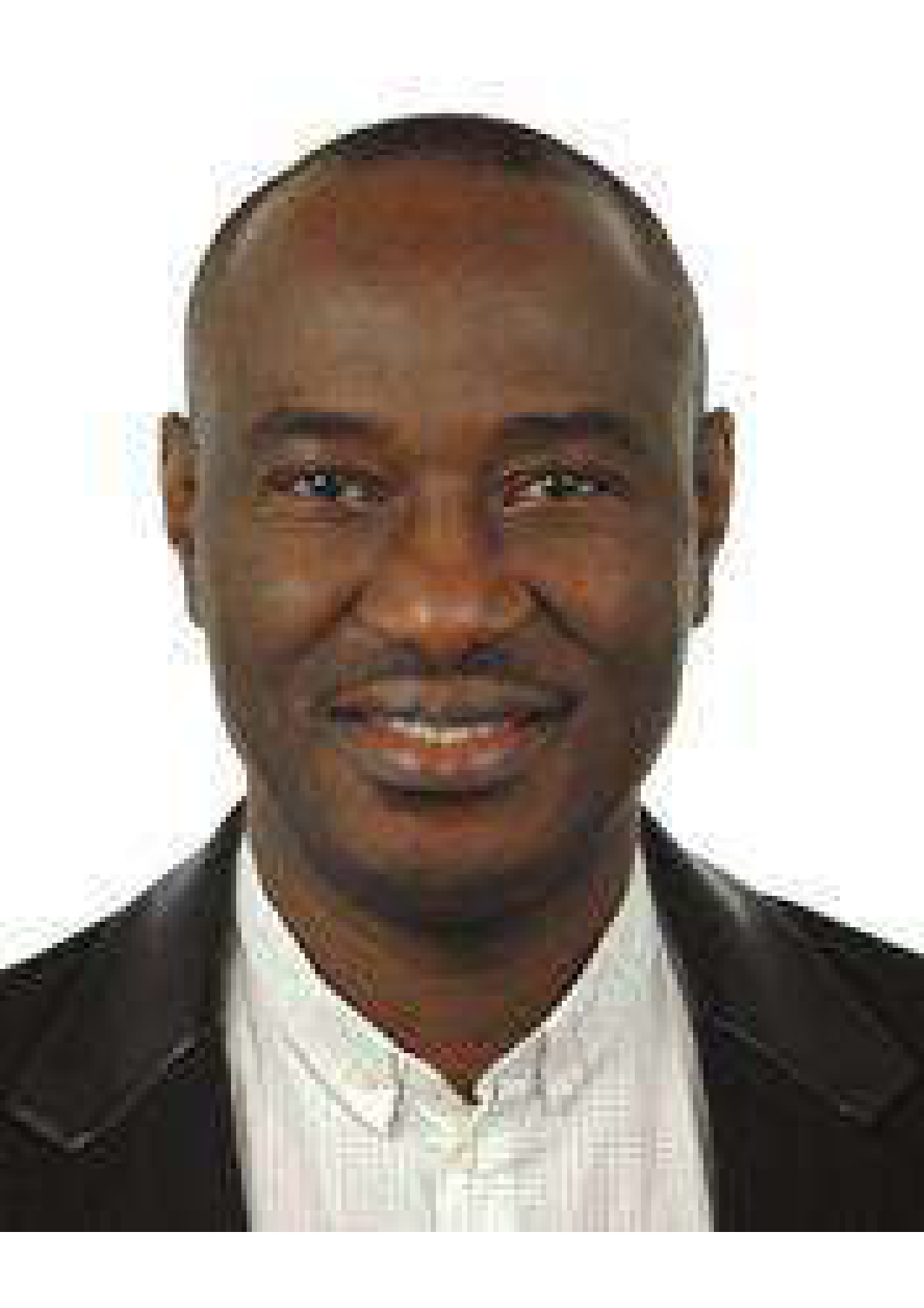
Regenerative Urban Futures: A Framework for Sustainable City Renewal
Title
Regenerative Urban Futures: A Framework for Sustainable City Renewal
Author
1. Henry Onomakpo Onomakpo, Student, Universitas Gadjah Mada, Indonesia
Abstract
Rapid global urbanization necessitates a shift towards more sustainable urban development models. Regenerative approaches, which aim to create net-positive social and ecological outcomes, offer a promising alternative yet often lack practical implementation frameworks for urban renewal. This study addresses this critical gap by exploring how future thinking methodologies can be integrated with regenerative principles. The primary objective was to develop a structured, sustainable, regenerative framework applicable to urban transformation projects. A systematic literature review methodology underpinned this work; 101 relevant publications, sourced from the Scopus and Dimensions databases, were analyzed to synthesize foundational concepts and practices.
The analysis confirmed that effective regenerative urban renewal requires moving beyond simple harm reduction towards active restoration of social-ecological systems and enhanced resilience. Key findings indicate the necessity of integrating deep place understanding ("story of place"), systemic analysis, strategic foresight techniques, and participatory community engagement processes. The developed framework operationalizes these findings, outlining core principles and actionable steps for practitioners. This research provides a theoretically grounded yet practical tool for urban planners, designers, and policymakers. By bridging regenerative theory and practice through a futures-informed lens, the framework offers a novel pathway to foster more resilient, equitable, and thriving urban environments.
Keywords
Conclusion
This study investigated the integration of future thinking methodologies with regenerative approaches to address the complexities of sustainable urban renewal. Through a rigorous literature assessment and bibliometric analysis, the study revealed the expanding importance and multidisciplinary character of regenerative concepts, as well as the crucial need for practical frameworks to guide their urban implementation.
The primary contribution of this work is the development of the Sustainable Regenerative Framework, comprising four interconnected phases: Holistic Assessment, Strategic Foresight, Regenerative Design, and Adaptive Implementation. This framework offers a theoretically grounded and actionable pathway for urban stakeholders to move beyond conventional sustainability practices towards actively fostering the health and vitality of interconnected social and ecological systems. While acknowledging the limitations inherent in a literature-based synthesis and the need for empirical validation, this framework provides a structured approach to navigating urban transformations towards more resilient, equitable, and life-affirming futures. Continued research, practical application, critical reflection, and collaborative learning are essential to further advance the theory and practice of regenerative urbanism.
Author Contrubution
Henry Efe Onomakpo Onomakpo conceived the study, performed the literature review, conducted the bibliometric analysis, developed the framework, and wrote the manuscript.
Funding
This research did not receive any specific grant from funding agencies in the public, commercial, or not-for-profit sectors.
Conflict of Interest
The author declares that there are no conflicts of interest.
Data Sharing Statement
The bibliometric data analyzed in this study originates from the Scopus and Dimensions databases. Due to the proprietary nature of these databases, direct access to the raw data is subject to individual subscription agreements with the respective database providers. However, the processed data, along with the analytical code used in this study (primarily utilizing the "bibliometrix" package in R, which can be assessed on https://cran.r-project.org/package=bibliometrix), is deposited on the publisher’s website. The materials will remain archived permanently.
Software And Tools Use
The biblioshiny() function within the bibliometrix package in R was utilized for conducting bibliometric analysis. This tool enables users to perform comprehensive analyses of scientific literature, including citation analysis, co-authorship networks, and keyword analysis, providing valuable insights into research trends and patterns.
Acknowledgements
The author would like to thank the faculty of Economics and Business staff for their support in the preparation of this manuscript.
Corresponding Author
Copyright
Copyright: ©2026 Corresponding Author. This is an open access article distributed under the terms of the Creative Commons Attribution License , which permits unrestricted use, distribution, and reproduction in any medium, provided the original author and source are credited.
Onomakpo Onomakpo, Henry. “Regenerative Urban Futures: A Framework for Sustainable City Renewal.” Scientific Research Journal of Environment, Earth and Physical Science, vol. 3, no. 1, 2025, pp. 33-59, https://isrdo.org/journal/SRJEEP/currentissue/regenerative-urban-futures-a-framework-for-sustainable-city-renewal
Onomakpo Onomakpo, H. (2025). Regenerative Urban Futures: A Framework for Sustainable City Renewal. Scientific Research Journal of Environment, Earth and Physical Science, 3(1), 33-59. https://isrdo.org/journal/SRJEEP/currentissue/regenerative-urban-futures-a-framework-for-sustainable-city-renewal
Onomakpo Onomakpo Henry, Regenerative Urban Futures: A Framework for Sustainable City Renewal, Scientific Research Journal of Environment, Earth and Physical Science 3, no. 1(2025): 33-59, https://isrdo.org/journal/SRJEEP/currentissue/regenerative-urban-futures-a-framework-for-sustainable-city-renewal
8040
Total words2963
Unique Words367
Sentence19.711171662125
Avg Sentence Length0.19284253525982
Subjectivity0.025342919941742
PolarityText Statistics
Viewed / Downloads
Total article views: 237 (including HTML, PDF, and XML)| HTML | XML | Total | |
|---|---|---|---|
| 112 | 95 | 30 | 237 |
Viewed (geographical distribution)
Thereof 237 with geography defined and 0 with unknown origin.
